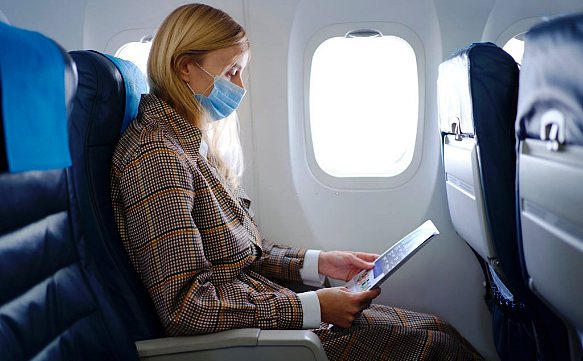
Security
20.12.2020 1390
What should you do for your health when traveling in airports and airplanes?
Fortunately, the global pandemic is still under control. We will soon return to the normal course of our lives. But while we are forced to make business or personal travel within these standards.
The new coronavirus or COVID-19 as a scientific code
What should you do for your health when traveling in airports and airplanes? It's safe to say that he surprised the world. Remember, preparing for a global epidemic that disrupts daily life would be a disaster scenario only Batman can dream of. As research proceeds, the effects of the global pandemic are likely to be felt in many areas - from education to health care, from business to tourism. Homework and online learning are concepts that will be heard a lot about in the years to come. However, the epidemic has not stopped and many uncertainties remain.
This uncertainty naturally also affects the tourism industry. New standards have been set in many health-related areas such as hotels, airports, airplanes and visa procedures. For example, one of the most discussed topics in the coming days could be "Free Passport". While this basis is not yet clear, there are those who say this idea needs guidance and that this is the beginning of biodystopia.
Perform online and offline processes.
Try
online procedures before your flight. Also, don't forget to do all the necessary things offline at the airport. For example, checking passports and documents at Istanbul Airport simplifies the delivery of goods and makes them contactless. Before you travel, check the airline and airport website for their rules.
Your things are special to you.
If security personnel need to check your luggage when entering the airport, ask them to wear new gloves. Remember, the virus is everywhere. Gloves should be changed every time you check to prevent spread and contamination of your belongings. According to Charles Gerb, a professor of microbiology at the University of Arizona, you should never go barefoot at security checkpoints where metal detectors are located. Make a note of it.
Put on your mask and gloves.
Airports are regularly disinfected by special cleaning teams. But don't forget to wear a mask and gloves. Be careful not to touch any areas that might be too dirty.
Social distance. Social distance. Social distance.
Due to the epidemic, airports and aircraft are already equipped according to social distance rules. Danger. Take a stroll while you wait at the airport. During this time, stay 1.5 meters away from other passengers. If possible, arrive at the airport earlier than expected. We are confident that you do not want to break social rules.
Take a disinfectant with you.
Disinfectants can be found in many places, both at the airport and on the plane. However, it is helpful to have a disinfectant with at least 60% alcohol with you. A complete disinfection is carried out after every flight in the aircraft. However, if you are a little more moody than usual, disinfectants can be used to clean areas that many people come into contact with, such as the bathroom. B. Seat belts, armrests and tables. Of course, don't forget that wet wipes are less disinfectant.
Your own things are the best.
Many airlines recommend that passengers bring a pillow. From a hygienic point of view, it makes sense to take a pillow with you on the flight. In addition, some airlines have suspended or restricted the provision of food and drink. These airlines also recommend that passengers bring food and snacks with them. Of course, we are confident that no meal or snack can be as good as yours. However, we remind you that there is no clear consensus among airlines. It is therefore a good idea to ask your airline before traveling whether you can bring something to eat.
Do not hurry.
The global epidemic has reminded us that we are in a bit of a hurry, sometimes we get lost in the flow of life. Now you need to calm down a little, especially around airports and airplanes. Keep calm and keep a social distance, any problem will be solved without difficulty according to the instructions of the authorities.
Trust the flight attendants.
Remember that the booth staff are usually trained and experienced professionals. The flight attendants are prepared for all situations that may arise during the flight. They solve potential problems quickly. So don't panic, listen to the instructions.
This is a cold.
According to a guideline developed by the British Athletic Institute, the risk of catching a cold on an airplane is 23 times higher than normal to reduce the risk of illness while flying. Have no fear. It's a little cold, but make sure you go through the authorities' quarantine after the flight and see your doctor if symptoms worsen.
Other blog content that might interest you


